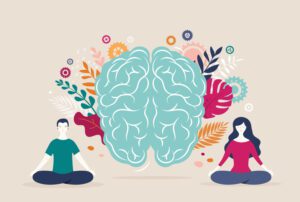How can HR leaders support the next generation of HRBPs?
- 6 Min Read
Former L’Oréal CHRO Stephane Charbonnier on how HRBPs are evolving and what HR leaders can do to support their increased impact and drive greater strategic value from HR
- Author: Stephane Charbonnier
- Date published: Jul 13, 2023
- Categories

Ten years ago, the role of the HR Business Partner (HRBPs) was to be on top of administrative tasks such as payroll, benefits administration, employee relations, and compliance.
In many cases, HR had a seat at the table and was ready to do whatever it took to stay there, even if our contributions were not entirely strategic. Other business leaders saw the HR function as an arm of support rather than a strategic partner.
The use of HR technology was synonymous with HRIS. HR leaders were not informing their decisions with data analytics. The role of the HRBP was more transactional.
Yet, we could sense a growing recognition of the importance of HR in driving organizational success. And beyond the HR Leaders, pioneers, and beacons of our profession that had written the history of our function, HR professionals were beginning to take on more strategic roles.
The shifting sands of HR
The past three years have accelerated the impact of HR on both organizations and societies at large. We have seen HR professionals around the world providing employees with a nurturing and supportive environment. Meanwhile, society has been facing an unprecedented health, social, and geopolitical polycrisis.
Edelman’s 2022 Trust Barometer confirmed that employers continue to be the most trusted institution ahead of the Federal government, any media, and even ahead of the Supreme Court.
We also know that the business context following the 2008 financial crisis called for greater transparency in the workplace regarding products, brand positioning, equity in gender, compensation, and ethnicity.
And we know that transparency drives trust! Who else, if not Human Resources, could be so deeply needed in organizations given our current crossroads?
It is time to recognize that HR professionals are not only strategic partners first and foremost who understand the business needs, but who are also as effective as any other functions in contributing to the success of the organization to create market value.
It has never been a better moment. The time for senior HR leaders to evolve, nurture and equip HRBPs to become strategic partners is now.
HR leaders must develop a curriculum for the HR function. This curriculum should mirror the best-in-class practices we have developed for our business partners in marketing, digital, commercial and others.
We should leverage different formats (virtual, in-person) and vertically with other HRBPs across our company. But, we should also work with other HRBPs across external organizations. Unlike patents in R&D, I do not believe any secrets in HR shouldn’t be shared for the benefit of the broader industry.
Nurturing next-generation HRBPs
Alongside delivering functional excellence, developing individual and collective capabilities, strengthening the talent pipeline, creating a diverse and inclusive workplace, and aligning HR practices with business strategy to create value, HR must meet many expectations that are critical to be truly effective.
HRBPs must deeply understand the business
The industry, the competitive landscape, and adjacent industries could all impact the company’s business model in both the short term and the long term. HR leaders must ensure their HRBPs have a deep understanding of this ecosystem.
HRBPs should spend time with business partners and ask questions. If there are shadowing programs that exist, or intraships, leverage them. Encourage them to read the annual reports and proxies of competing companies or listen to analysts’ calls. In our current connected world, any CEO or leader is one click away. HRBPs must be curious!
HRBPs should think strategically
They should think strategically to provide leaders with insights and recommendations on how HR strategies could support business objectives. To provide insights and recommendations, HR must lead with people’s data to inform decisions, measure impact, and show ROI.
Encourage HRBPs to come to the table equipped with data that will be relevant to the discussion and will help you craft strategic direction and support business objectives.
What is your turnover or your diversity numbers? What is the best path for people to be successful at a senior level? Which critical experiences do they need to have before getting leadership roles?
HRBPs should have a deep understanding of employees’ needs
Just as marketing functions do for consumers, HR should have a deep understanding of employees’ needs to provide the best experience. To do so, they need to establish strong relationships throughout the organization.
Developing a good understanding of employees’ needs can stand on employee listening through annual pulse surveys, mini ad hoc surveys on specific themes (transformation, culture, etc.,) and exit interviews.
But it can also be through more qualitative feedback on the employee experience through focus groups, check-in during onboarding, and other check-ins. The combination of both will help you identify the themes that are important to employees.
HRBPs must be masters at managing change effectively
To effectively navigate accelerating changes driven by business and/or cultural initiatives, HRBPs must be masters at managing change effectively in the workplace and articulating it internally and externally.
Mastering change for HRBP requires a basic knowledge of change models. There are dozens out there that are fairly similar.
My piece of advice is to pick the one that will work with your culture and your leaders. That you know will resonate internally. That people will be able to digest, own, and drive through personal accountability.
I would also recommend working with a coach who can help HRBPs stay focused on the various stages of the change process. I have seen strong effective partnerships that deliver compounded impact thanks to a powerful HRBP and Coach duo.
HRBPs must be talent champions
Finally, HRBPs must be talent champions and build talent strategies that will attract, develop, engage, and retain the right talents for the organization.
It starts with knowing the talent! HRBPs should be familiar with everything from their background to their performance and potential to their geographical mobility. HR leaders need to engage employees in constant conversation with their managers.
But it should be managed in a way that makes employees feel they are co-piloting their career with the support of their HRBP. Coaching skills are often extremely useful in these situations.
Where will HR be 10 years from now?
Will we see HR professionals taking critical business roles to lead organizations? Will the HR function still exist in organizations? Or will we have achieved such a level of maturity with employees and leaders that the function will become obsolete?
It is hard to predict. But what we also know is that technology will have a massive impact on the role of HR. Should we fear it, or should we embrace it? I see the rise of technology in the HR space as a true opportunity to amplify human capability and deliver greatness at scale.
One trait that HR professionals should always maintain is a strong moral compass. They should continue to be a “guardian angel” within companies. Isn’t the idea of doing good for people what motivates many of us to join HR in the first place?










